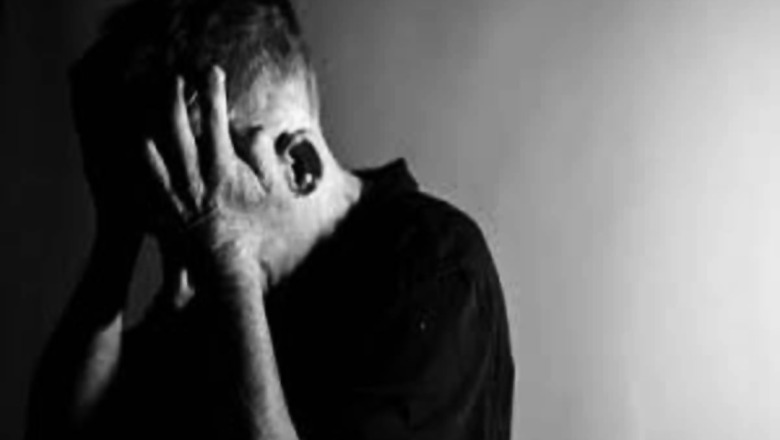
views
Twenty-year-old Isha’s life revolved around her college, her friends and the weekend visits to the cafes in Kolkata’s Park Street to break the monotony. However, with the Covid-19 pandemic, social life took a backseat. “Even as the restaurants have opened up, I feel a resistance to go out as the risk of infecting myself and my family is too high. I have been spending all my time on my phone,” she said. “But it’s not as comforting as meeting my friends in person as so much is lost in translation.”
The onset of the pandemic in March last year posed a threat not only to a person’s mental health but also to his or her sense of security. Being confined to homes because of a mandate, and not by choice, was a big blow to one’s social skills.
With the shutting down of offices, educational institutions, restaurants and pubs, socialising through social media became the new normal.
News 18 spoke to people to delve deeper into the matter and found that even after a year into the pandemic, people are having difficulties returning to a state of normalcy.
An IT professional from Kolkata, who did not wish to be named, had been infected by Covid-19 in September. Though he recovered from it, his deep-seated fear of getting reinfected has kept him confined to his house.
“I hardly step out unless absolutely necessary. However, being a social person, I have started conducting parties at my home to meet friends,” he said. “It helps my mental wellbeing and also reduces the risk of being reinfected.”
Clinical psychologist Charlotte D’Costa of the National Institute of Behavioural Sciences in Kolkata attributed this socially strained behaviour among the people to the pandemic. She said that the lockdown deeply impacted a person’s cognitive, emotional and social thinking which gave rise to a host of emotional imbalances like hopelessness, helplessness and worthlessness among the people.
“The inability to socialise in person gave rise to a myriad of mental health issues among the people. Amid the lockdown, people’s lives revolved around their gadgets, be it phone or laptop. In other words, a tool which could be controlled by them,” she said. “This, however, left a lasting impact on the people when the lockdown was lifted. People could now meet other human beings but unlike a gadget, these beings could not be controlled and this made the youth frustrated and socially distant. Some started detesting social events and remained confined to their homes while others were too scared to step out. The ones that did step out were overcome by the guilt of exposing themselves and their family to the virus.
In short, the social life of an individual post-Covid was severely disrupted.”
A relapse of cases of depression was a common occurrence during the pandemic, D’Costa revealed. Suicidal tendencies among the youth were also frequently reported between the months of March and December, all owing to the lack of a socially healthy life, she said.
News18 also reached out to the owners of a few restaurants, cafes and pubs, places that are hubs of socialisation.
“Having closed for over 2 months, when our restaurant opened on June 8, it seemed like we were relaunching the restaurant. Initially, it was difficult to get customers with the fear of Covid-19 looming over our heads. The number of customers on a relatively good day ranged from 10 to 30 per day. However, it picked up speed after Durga Puja in Kolkata and almost returned to normalcy from January this year,” said the managing director of Zaairah restaurant, Rahul Fogla. “But, with the sudden surge in cases again, we are witnessing a reduced turnout of customers currently.”
Hemant Agarwal, managing director of the pub 10 Downing Street, told News18 that the establishment is getting about 75 to 80 per cent occupancy compared to the usual footfall of 1,200 guests a week.
“While festive occasions like New Year’s Eve and Valentine’s Day have been quite promising, the footfall of customers on regular days is uncertain even till now,” he said. “However, we are witnessing growth in the past three months even though not quite like the pre-Covid times. The situation is improving on a daily basis.”
Talking about the customer experience, he added that the safety and comfort of patrons and staff members have been top priorities after reopening. However, the dance floor has been kept closed as per Covid safety guidelines, which has prompted complaints from the regular clientele and has in turn gravely affected customer experience and revenue.
Industry insiders say pubs and restaurants have been playing an important role in safeguarding the social life of the people while themselves struggling to stay afloat. However, metro cities have been witnessing a shift to alternative methods of socialising like house parties, potluck dinners, and board game nights, all within the confines of one’s home to reduce the risk of contracting the virus. While people talk about their efforts to return to normalcy, India is in the throes of another Covid wave.
However, while many are gripped with the fear of being stuck in their houses once again, a renowned psychotherapist and wellness consultant from Kolkata, Goutam Chatterjee, says the people need not worry.
“Covid-19 has been nothing short of a catastrophe,” he said. “From children to young adults, it has left a mark on the minds of all. When Covid-19 was first detected, it was like a foreign invader; fighting it seemed impossible. But now after a year, social stigma related to the virus has diminished as a result of which people have developed resilience towards the disease. Not only their bodies but their minds too are ready to fight the onslaught of the virus. ‘Nothing worse than this can happen’ has become the mantra of the people.”
Read all the Latest News, Breaking News and Coronavirus News here. Follow us on Facebook, Twitter and Telegram.




















Comments
0 comment